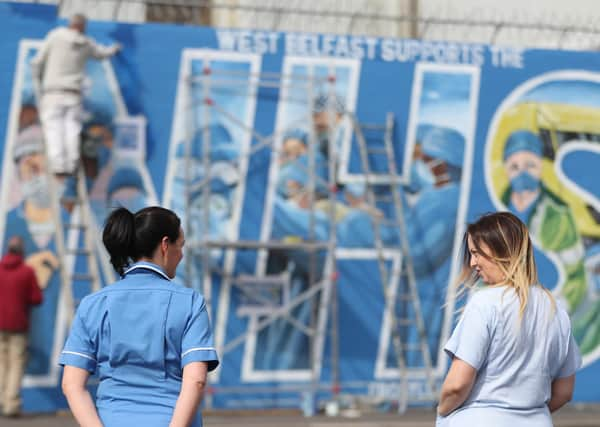NI spent £115m on nursing cover last year, audit report finds


This comes just months after the health service was rocked by unprecedented strike action from nurses and other health workers that was prompted, in part, by staff shortages.
The new report from the Northern Ireland Audit Office estimates that, at the end of last year, there were 2,754 unfilled vacancies in nursing and midwifery.
Advertisement
Hide AdAdvertisement
Hide AdSome trusts spent as much as £1,700 to cover single nursing shifts on bank holidays, the auditors found.
In total, temporary nursing cover cost £115 million in the 2018/19 financial year – over £100 million more than the sums spent in 2006/07.
Nursing cover was drawn from both internal banks and from external agencies.
The Northern Ireland Audit Office say the money paid to agencies – £52 million last year – represents “particularly poor value for money” for the public purse.
Advertisement
Hide AdAdvertisement
Hide AdSome of the blame for the nursing and midwifery shortage in Northern Ireland is attributed by the auditors to a decision taken nearly 10 years ago to cut the budget for training new nurses and midwives.
Before the 2011/12 financial year, the auditors say the training budget was around £30.1 million.
But, between 2011-12 and 2016-17 the budget was cut to £28.8 million per year and 732 fewer nursing training places were commissioned.
Northern Ireland Auditor General Kieran Donnelly said: “At a time when the focus should have been on growing the nursing and midwifery workforce, short-term savings were instead pursued.
Advertisement
Hide AdAdvertisement
Hide Ad“Substantially reducing the number of training places over a lengthy period has left the HSC (health and social care system) and independent care sectors with an insufficient staffing pool to cope with the rising demand for care.”
He continued: “I accept that workforce planning is a challenging area to manage, particularly given the rising demands, limited resources and intense global competition for staff facing the health service. Nonetheless, short-term decisions taken at a strategic level have meant that overcoming these serious challenges will take even longer.
“The reliance on temporary nurses, particularly agency staff, has not only resulted in soaring costs, it also can compromise the quality and safety of patient care as staff are deployed in less familiar clinical settings. It is clear that this does not represent value for money.”